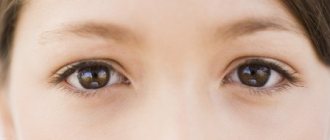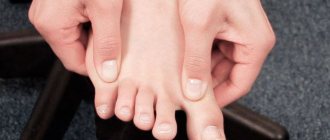ADHD in adults: what it is, symptoms, diagnosis, treatment
By: Administrator |
Tags: Diagnosis of ADHD, Treatment of ADHD, Causes of ADHD, ADHD, Attention Deficit Hyperactivity Disorder | Comments: | July 21, 2021 Attention deficit hyperactivity disorder (ADHD) is a condition that affects concentration, memory, and behavior. It was once thought that children with the condition outgrew the condition, but it is now recognized that many remain affected for life.
According to statistics, this disorder affects approximately one in 20 adults, mostly men. The disease is usually diagnosed in childhood, but some people are undiagnosed. It is much more difficult for able-bodied people to overcome the disorder as it makes managing daily activities more difficult, especially tasks that require organization, planning and focus. Among other things, many begin to drink, smoke and use psychotropic substances.
Features of ADHD in adults
Lack of focus and concentration is a neurological condition. Brain scanning studies show that people with this condition have neural circuits that are slightly different than those of normal people. Physical and chemical differences in the brain affect executive functioning. This means that people with ADHD have a much harder time concentrating and regulating their behavior.
The main features are:
- Difficulty staying interested (for example, at work during conversations or personal relationships);
- hyperactivity (for example, fidgeting or inability to sit still, talk a lot, gesticulate excessively);
- Impulsivity (eg, interrupting conversations, inability to wait in line).
ADHD – attention deficit hyperactivity disorder
Attention deficit hyperactivity disorder is one of the most common mental neurological and behavioral disorders in children. A huge number of specialists (in particular psychologists and neurologists) classify it as stable and incurable, but there are also those who believe that this belief is a myth. Not being professionals in the field of psychotherapy and neurology, we will not accept any of these points of view, but we will present in the article the most complete information about this pathology.
Below we'll go into more detail about what ADHD is, its causes and symptoms, and how it's diagnosed. We will also bring to your attention some rules for the treatment of ADHD (ways to combat it and ways to benefit from it) and tips on the prevention of this disorder, which can be used by parents who have identified attention deficit hyperactivity disorder in their children.
The most important thing about ADHD
According to statistics, attention deficit hyperactivity disorder is observed in about 5% of cases, which is the most common mental disorder in children. It is also known that for every one girl with this disease, there are three boys.
Children suffering from this disease inevitably face various problems not only in kindergartens and schools, but also at home, because they experience serious difficulties concentrating on any processes or objects and controlling their own impulses. And due to an unstable emotional background, there is misunderstanding and even condemnation on the part of people around, which in many cases becomes the cause of low self-esteem, negative thinking, anger and other destructive consequences.
In addition, children with ADHD are more likely than others to suffer domestic injuries. But what’s more scary is that already at an early age they can start smoking, drinking alcohol, narcotic and psychotropic drugs. Other pathologies that accompany ADHD are often depression, antisocial or manic behavior, stuttering, nervous tics and bipolar disorders, which manifest themselves in a destructive symbiosis of depressive and manic states.
That is why it is very important to know the causes, symptoms, methods of prevention, methods of control and ways to benefit from it, as well as related methods of developing thinking, including online games.
Main Causes of ADHD
There are some problems with determining the reliable causes of attention deficit hyperactivity disorder in children, because even today they have not been definitively established. However, psychologists and neurologists consider the following to be possible factors in the development of the disease:
- Features of the nervous system . This refers to the individual characteristics of human development, manifested in attention deficit and increased activity.
- Genetic predisposition , when the causes of the disease are in the genes. The risk of developing ADHD increases if one of the person’s close relatives has similar mental disorders.
- Lifestyle of an expectant mother . If a pregnant woman smokes, drinks alcohol and/or uses drugs, her child may develop ADHD as a result.
- Features of childbirth . This factor includes premature birth and difficult pregnancy.
- Unfavorable environmental conditions . This includes polluted air, water containing lead compounds, as well as exposure to toxic and noxious substances present in the environment.
Based on this, one of the most effective ways to prevent ADHD is to maintain a healthy lifestyle. But we will touch on the issue of treatment and prevention, but for now let’s talk about the symptoms of the syndrome in children.
ADHD symptoms and diagnosis
First, it is important to note that the diagnosis of such a severe mental illness is only possible in situations where its symptoms are fully manifested. It is carried out not through special methods or the use of some kind of apparatus, but through ordinary observation, obtaining data about family members (to establish predisposition) and collecting information from people around the child, for example, relatives, parents, teachers, friends, etc. d. In addition, for a final analysis of the mental state, a general medical examination is also required.
As for symptoms, we take information from the American Psychiatric Association as a basis. Its experts identify the following signs of ADHD in children:
- Absent-mindedness . It is expressed in the fact that the child constantly loses his things, for example, clothes, school supplies, toys; and also that he cannot independently perform certain actions in a calm state: write, draw, read, play, etc.
- Forgetfulness . It is expressed in the fact that the child constantly forgets the requests of parents, teachers, and friends; does not remember his promises, often abandons homework, homework, or instructions before finishing.
- Inattention . It is expressed in the fact that the child makes many mistakes when performing any actions, the reason for which is the inability to concentrate on the same processes.
- Dispersion . It is expressed in the fact that the child is distracted from what he is doing, does not express a desire (and even resists) to participate in work that requires the use of the mind, because realizes that he will not succeed. Here we can note the inability to concentrate for a long time on games, lessons, studying and performing other tasks.
- Hyperactivity . It is expressed in the fact that the child talks a lot, restlessly and chaotically moves his legs and arms, feet and hands, cannot sit quietly in one place, constantly fidgets, often gets up when he should sit, performs an excessive number of aimless movements, including in situations where it is impossible to behave this way. Speaking of hyperactivity, it would not be superfluous to note that in children with ADHD, motor activity can continue even when they are sleeping, and such children most often sleep in the fetal position. If you talk to a child with ADHD and, for example, ask him questions, he begins to answer them before he has even listened to the end. You can also judge hyperactivity by the fact that children always interfere in conversations that do not concern them, and interfere in other people’s activities and games.
However, there is no need to sound the alarm if you suddenly notice something from the above in your child. The fact is that we can talk about attention deficit hyperactivity disorder when six or more symptoms appear in behavior. In addition, this should happen systematically over six months at school or kindergarten, at home, in interaction with other people. It is also important that only psychologists, neurologists and some other specialists who understand the developmental characteristics of children can make an appropriate diagnosis. And only after the diagnosis has been determined, treatment can begin.
ADHD Treatment
As we have already mentioned, most experts believe that attention deficit disorder is an incurable disease. Despite this, there are those who are sure that this is a myth and propose certain measures for the treatment of ADHD.
Treatment of ADHD involves the use of short-term and long-term drug therapy and behavior correction through psychotherapy. The main medications in this case are psychostimulants like Dextroamphetamine-amphetamine, Lisdexamfetamine and Methylphenidate, which act on neurotransmitters to normalize attention and reduce hyperactivity. Antidepressants are also often used, but their effect is much slower. Remember that only a doctor can prescribe medications and select the dosage.
In addition to traditional medicine, alternative methods can also be used to treat ADHD, although they mostly apply to adults. Among these are meditative practices, yoga, qigong, and special diets where food is taken without sugar, allergens, artificial colors, preservatives and caffeine. But we should not forget that in addition to physical treatment, to prevent and alleviate ADHD, you also need to engage in intellectual treatment. You can, for example, take specialized courses on developing thinking, play special online games (you can find an excellent selection of these here). And if you approach the issue of treatment and prevention of ADHD in a comprehensive manner, you can achieve, although not completely getting rid of this disease, but still make sure that the child simply outgrows it, having the opportunity to enter adult life as a prepared person.
Now we want to give some advice to parents who have identified attention deficit hyperactivity disorder in their children.
Tips for parents of children with ADHD
Children with ADHD are specifically taught to cope with the symptoms of this disease. But methods of struggle and ways to benefit from this can only be effective when treatment (medication, psychotherapy and other methods) is accompanied by the direct participation of parents in it. What can you do at home to alleviate your child’s illness? Here are some effective recommendations:
- Show your feelings and let your child know that you appreciate and love him. Give him more time, without the participation of strangers, kiss, hug and in every possible way show that you accept him this way.
- Increase your child's self-esteem , which is great for playing sports. For example, introduce him to martial arts and active training. Even if no noticeable achievements are achieved, sport in any case develops willpower, discipline, the desire to work on oneself, and also accustoms one to a routine.
- Set the tasks correctly . When entrusting something to your child, try to express it simply. Your words, phrases and formulations must be age appropriate and clearly perceived and understood by the child. It is recommended to divide large tasks into several smaller stages.
- Don't forget about rest . You must provide your child with conditions for rest. Do not tire him out, do not allow him to become overly tired, and do not overload him with tasks and work. Take breaks, arrange a nap, allow you to do what you love.
- Follow the regime . Create a daily routine and schedule for each day to instill discipline in your child. But do it casually and gently. It is much easier to raise children with ADHD when the parent stops unwanted behavior and encourages desirable ones.
- Involve teachers . This means that you simply need to tell the teachers and educators with whom he interacts about the characteristics of your child in order to ensure support from them. You can talk about the possibility of changes in the grading system, develop an individual lesson plan, or even transfer your child to a private school where he will receive a special approach.
- Stay confident and be patient . Accept the fact that you won’t be able to deal with difficulties overnight. Therefore, try to remain calm and balanced. This will allow you to avoid mistakes and avoid overwork in raising your beloved child. In addition, children tend to copy the behavior of adults who are authoritative for them, which means you should always serve as a good role model.
- Develop your thinking . Pay special attention to your child's intellectual development. This is suitable for reading books, solving logical problems, watching educational TV shows and documentaries, all kinds of games (including online) and courses on the development of thinking.
And let us remind you once again that in no case should you determine attention deficit hyperactivity disorder in children on your own. If you regularly notice any deviations, do not draw hasty conclusions, but seek advice from professionals. Most likely, unusual behavior simply reveals the developmental characteristics of your beloved son or daughter.
In conclusion, taking into account the fact that in the article we examined the features of ADHD in children, it is worth saying a few words about this disease in adults.
ADHD in adults
Many adults who were not diagnosed with ADHD in childhood do not understand that this particular illness is the cause of most of their difficulties in life, problems with attention and learning new material, and difficulties in relationships with other people. Therefore, people who are familiar with this are recommended to study ADHD on their own and seek help from qualified specialists, because appropriate examinations can provide answers to many questions.
And if we talk about the prevalence of attention deficit hyperactivity disorder in adults, it depends on the concomitant psychological problems they have. For example, a study conducted in Mexico in 2007 showed the presence of the disease in 5.37% of 149 people not seen by psychiatrists and in 16.8% of 161 people who were seen by psychiatrists. It is also curious that in the category of psychiatric patients, the difference in the presence of ADHD was “inverted” in relation to the general category and the category of children (remember the beginning of the article): the syndrome was observed in 21.6% of women and only 8.5% of men.
We also recommend reading:
- Storytelling
- Stress and psychology: how they are connected
- Tourette's syndrome: what is this disease in simple words
- Munchausen syndrome
- Nootropics: Upgrading the Brain with Drugs
- Dysgraphia: definition, causes, symptoms and treatment
- How music helps improve health
- Endogenous depression: signs, symptoms and treatment
- Post-traumatic stress disorder: briefly about the most important things
- Diogenes syndrome
- Dyslexia: Definition, Causes, Symptoms and Treatment
Key words:1Psychoregulation
Causes of the disorder
ADHD is not caused by poor parenting, too much sugar, additives, absent fathers, or vaccines. These are all myths. Most often, attention deficit disorder is a genetic disease. The chance that a child will inherit the disease from one parent who has a genetic predisposition is 70–80%.
But there are a number of other factors that contribute to the development of pathology:
- traumatic brain injury or infection;
- lack of oxygen or exposure to alcohol or nicotine before birth;
- premature birth;
- difficult experiences in early childhood.
Causes of hyperactivity
Among the causes of the violation:
- unfavorable course of the mother's pregnancy, including smoking and drinking alcohol during pregnancy;
- neurological disorders during intrauterine development, for example, fetal hypoxia, asphyxia at the time of birth, premature birth;
- the influence of the family atmosphere on the development of the child in the first months of life, frequent scandals of parents, malnutrition and other unfavorable factors.
The likelihood of hyperexcitability increases as the number of these factors that appear together increases.
How to Identify ADHD Symptoms in Adults
The key symptoms of this disease are inattention, hyperactivity, and impulsivity, but this is a very limited list. It is worth considering in detail how the symptoms of the diagnosis manifest themselves.
Examples of inattention symptoms:
- inability to concentrate on a task for long periods of time;
- disorganization (for example, not being able to regularly use diaries or calendars);
- constant forgetfulness (of things that happened this afternoon, etc.);
- easy distractibility of a person and his inability to return to the previous task;
- delay in completing tasks and constant disorganization;
- excessive clumsiness;
- falling asleep in class or meetings;
- poor time management.
Some people with ADHD can control themselves and focus when they really enjoy something. But loss of concentration also occurs when they become bored. In this case, hyperactivity manifests itself, which is difficult to control.
Examples of symptoms of hyperactivity:
- the patient seems excited or nervous all the time - at work this can manifest itself on any day: both on the day of submitting a report to the manager, and on the most ordinary day or during a corporate party;
- being unable to sit still and concentrate - thoughts scatter and a person takes on many tasks without completing them;
- talk without interruption, without noticing others;
- having a fast flow of thoughts or being unable to stop thinking is one of the subtle symptoms;
- constant problems with sleep.
It is also worth mentioning a separate symptom of the diagnosis of ADHD in adults - excessive impulsiveness:
- a person does not take into account the consequences of his actions;
- constantly interrupts other people;
- takes over what someone else does;
- changes jobs frequently;
- uses drugs and alcohol in large doses;
- too hot-tempered and irritable.
Misconceptions about ADHD
In our country, there are not so many adults with a confirmed diagnosis of ADHD. This is explained by the fact that only a few people with such a disorder seek specialized help. It is simply not customary for us to go to psychotherapists, psychologists, and especially psychiatrists. But in the West things are different. The diagnosis of ADHD was once made to many celebrities, who show by their example that this disorder is not a death sentence. Jim Carrey, Paris Hilton, Justin Timberlake, Avril Lavigne and many other world film and pop stars suffer from attention deficit disorder. They openly talk about their problems, thereby helping ordinary people to believe in themselves and begin to change their lives for the better.
Therefore, you should not believe the misconception that ADHD is just a “fashionable” diagnosis that justifies poor upbringing and pedagogical neglect. The first scientific works devoted to ADHD were published at the beginning of the last century. There are other myths regarding attention deficit hyperactivity disorder, here are some of them:
- The diagnosis of ADHD is given to almost all children who are overly mobile and active. In fact, this disorder is not very common. Approximately 6% of the population faces this disorder, and only a third of them receive the necessary treatment. Most hyperactive children are not treated at all, especially girls;
- Attention deficit disorder is a disease of hyperactive boys. But this is far from true; in most cases, patients with attention deficit disorder do not have hyperactivity. Such people are simply considered lazy and stupid. The syndrome is very common among girls and women, but, according to statistics, it is more often diagnosed in the stronger sex;
- This disease was invented by Americans who are prone to finding simple solutions to complex situations. The syndrome occurs in almost all countries, but not everywhere this disorder has been sufficiently studied;
- The main cause of ADHD is bad teachers, parents and lack of rigidity in upbringing. The family and immediate environment can affect a person with ADHD, but the main cause of the disorder is genetic characteristics or organic changes in the brain. In this case, even the most experienced teachers and loving parents can rarely influence the child’s behavior;
- People with ADHD put little effort into solving their problems and therefore should not make excuses for them. MRI studies have led to the conclusion that the more a person with this syndrome tries, the more his condition worsens. When trying to concentrate on performing any task, the patient simply turns off the frontal cortex of the brain.
But the most dangerous is the misconception that children with ADHD outgrow this pathology, and after 12-14 years all symptoms will disappear. Modern research has shown that manifestations of attention deficit disorder persist into adulthood in more than half of all children suffering from this disorder.
Such a large number of myths and misconceptions about ADHD are explained by the fact that children and adults suffering from it look quite normal, they are able to cope with basic responsibilities. The syndrome, although it complicates a person’s life, still does not make him seriously ill. Adults adapt to their pathology so well that they can mislead even the most experienced doctors. In most cases, abnormalities can be identified only after a thorough computer examination of the patient’s brain.
Methods for diagnosing ADHD
The diagnosis must be made by a mental health professional with treatment experience, but additional testing is also necessary, including:
- consultations with a psychotherapist and psychiatrist;
- electroencephalography (EEG);
- brain scan (MRI);
- Ultrasound Dopplerography of blood vessels (USDG).
Typically, adults are only diagnosed with this if there is evidence that they had symptoms in childhood. The symptoms must also be present in more than one situation (for example, at work and at home) and affect daily life. The presence of at least 5 symptoms within six months is indicative. If you find such a number of symptoms, you should definitely consult a doctor.
Symptoms and signs of ADHD
Symptoms of the disease, as well as the degree of their manifestation, depend on the age of the child and are associated with the conditions in which he lives.
Signs in an infant
The first signs of a baby having ADHD can be noticed in the first months of life. The baby chaotically and frequently waves his arms, bends and unbends his legs. He is restless and moody when eating. The baby has trouble falling asleep, sleeps little, wakes up and flinches at the slightest sound, and it is difficult to calm him down when he cries. Frequently vomits during and after meals.
Symptoms of ADHD in a preschooler
If increased excitability does not disappear over time, then the following behavioral features indicate the development of ADHD in a preschooler:
- Constant body movements (jumps up while eating, swings limbs, turns head).
- Inability to concentrate and be patient while playing.
- The desire to break and throw toys around. The child does not have a favorite toy, since he is not able to become attached to any of them and does not enjoy quiet activities.
- He doesn’t like being read to or told something, interrupts adults endlessly, gets distracted by running to the window, tries to do several things at once, and quickly gets bored with everything.
- Since the brain does not control his movements, he can inadvertently push others around, break something, or hurt another child.
Despite the fact that the baby has the ability to learn, there is a lag in his intellectual development due to poor memory and lack of interest in cognitive activities and games. Often such a child begins to speak late and pronounces words incorrectly.
Physical ailments of neurotic origin often appear (tics, sudden convulsions, causeless screaming, frequent blinking, as well as involuntary urination and defecation). Such a child experiences increased energy consumption in the body, so he loses weight and often suffers from colds due to low immunity.
Manifestations of the syndrome in a schoolchild
As mental retardation from peers progresses, a student with ADHD will have even more problems learning and communicating with people. Manifestations of the disease can become dangerous. He loves to fight not only at school, but also attacks his mother, father, and grandparents. Can hit a teacher or doctor, is cruel, and prone to sadism.
Jumps up and walks around the class during the lesson, does not tolerate comments, does not react to them. Not wanting to study himself, he interferes with other children, incites them to disobey the teacher, intimidates them, and disrupts lessons.
The child is talkative, but is not capable of dialogue, does not “hear” the words of others, interrupts and shows excessive emotionality. Without listening to the question, he mindlessly shouts out the answer. If the behavior of a small child can still cause bewilderment, and only a doctor can make a diagnosis of ADHD, then in a schoolchild such symptoms clearly indicate a neurological pathology, and the diagnosis is beyond doubt.
Depending on the type of ADHD that occurs in children, the signs of the disease differ: either mental retardation (lack of attention) or physical hyperactivity predominates. With a mixed form of the disease, both are observed.
Symptoms of ADHD in a teenager
At the age of 13-15 years, the manifestations of the disease become less noticeable, the teenager becomes less impulsive and irritable. New traits appear in his character: anxiety, concern. He is fussy, constantly finds some important thing to do, but cannot complete anything, because of this he becomes embittered.
He has low self-esteem. Conflicts with others and ridicule from classmates can lead to suicide, especially if a teenager feels out of place in the family. There are no authorities for such children; they are rude to adults. They lack the ability to make independent decisions and a sense of responsibility. They usually have no fear of danger.
Treatment of attention deficit disorder in adults
Treatment is provided by a psychiatrist with experience in treating ADHD. It includes the following:
- make lifestyle changes and develop systems to improve time management and ability to complete tasks;
- solving any problems with drug addiction or alcoholism;
- teach you to direct your concentration in the right direction;
- help you get support from friends or family.
Medicines can help you concentrate better, be less impulsive, feel calmer, and learn and practice new skills. Typically, doctors prescribe antidepressants, inhibitors, antipsychotics, as well as vitamins and nutritional supplements for attention deficit hyperactivity disorder.
Popular medications for treatment include:
- methylphenidate (Concerta, Ritalin);
- dexamphetamine (Dexedrine);
- atomoxetine (Strattera).
Additional Methods
Along with psychotherapy and drug treatment, other methods of correcting attention deficit disorder can be used. Most of them are suitable for independent use as auxiliary methods in the complex treatment of ADHD.
One of the easiest ways to reduce the symptoms of attention deficit disorder is to exercise regularly. During exercise, the levels of serotonin, dopamine and norepinephrine in the brain increase. These substances have a positive effect on the ability to concentrate. To achieve sustainable results, you need to train at least 4 times a week, but you don’t have to go to the gym for this. You can simply take walks in the park.
Treatment will be more effective if sleep can be normalized. When a person sleeps, his brain rests and relaxes, resulting in an improved psycho-emotional state. Without a stable sleep pattern, ADHD symptoms will become more severe.
You should also pay attention to your diet; it should be balanced and regular. But with attention deficit disorder, it is more important to monitor not what a person eats, but how he does it. The inability to self-organize leads to the fact that a person’s nutrition becomes disordered. He can go without food for a long time and then absorb it in large quantities. As a result, not only the symptoms of the disorder worsen, but also the person’s well-being as a whole.
Yoga or meditation can help relieve some of the symptoms of ADHD. If you practice regularly, you can increase your focus, reduce impulsivity and anxiety, and get rid of depression. You can find recommendations for yoga classes on the Internet, but it is better to contact a trainer. He will create the most suitable set of exercises (asanas) taking into account your age and physical health.






